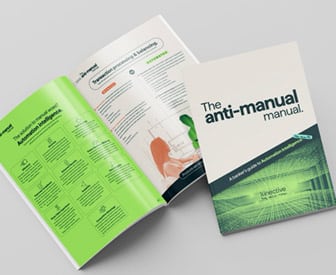Scott Galloway is a passionate opponent of conventional wisdom, groupthink, and the myriad cliches of business leadership and innovation. As part of his day job as professor of marketing at NYU’s School of Business, for example, he firmly advises his students (and others) “do not follow your passion”.
Galloway has earned that right, having founded nine different businesses, and “gone from shopping for private jets to negative net worth in 2008, and then back to financial security.”
His clear-eyed and sometimes cantankerous takes on business issues has earned him an army of followers via an immensely-popular YouTube channel, the popular Pivot podcast (covering tech with collaborator Kara Swisher), his No Mercy/No Malice newsletter, and authorship of the Digital IQ Index (rating luxury brands on their “digital competence,” as an outgrowth of the L2 think tank he formed in 2010) — not to mention New York Times–bestselling books like “The Four,” “The Algebra of Happiness,” “Post Corona and Adrift: America in 100 Charts” and the upcoming “Algebra of Wealth: A Simple Formula for Financial Security,” due out in April.
Scott Galloway will be a featured speaker at The Financial Brand Forum 2024, May 20-22 in Las Vegas, part of our Forum University program, where, along with Wendy Smith, Professor of Business at University of Delaware, he will teach cutting-edge leadership skills and new management strategies. See the Forum website for more info on Forum University, and details on the full program.
Here are some of his recent observations on business, the economy, ethics, and the many other topics that pique his curiosity.
Listening is underrated.
Galloway says about hearing, “We don’t begin to harness this superpower until the age we begin to lose it. Hearing, like youth, is wasted on the young.”
But he also observes, “We all hear things; there’s no corner of the globe that’s free from the vibrations that manifest in sound. So we must decide what to listen to. But many of us aren’t listening, and that dampens our abilities and undermines our relationships.”
For leaders, listening is vital, and Galloway nods to Peter Drucker’s rule of “listen first, speak last” when discussing how listening ties into leadership.

Join industry’s leading AI conference - free passes available!
Ai4 is coming to Las Vegas, August 12-14 2024. Join thousands of executives and technology innovators at the epicenter of the AI community.
Read More about Join industry’s leading AI conference - free passes available!

The New AI: A Banker’s Guide to Automation Intelligence
Manual tasks across channels is costly. And while AI is hot, there’s a simpler way to bring efficiency that many bankers have overlooked.
Read More about The New AI: A Banker’s Guide to Automation Intelligence
He adds, “Good leaders are known for producing great results. And greatness is in the agency of others. A leader’s opportunity to take the field with the all-star team is a function of retention — the loyalty of the most talented players, who have more opportunities to go somewhere else. Their loyalty is a function of the leader’s appreciation, economic and psychic. Great leaders listen, then tangibly demonstrate they understand someone’s unique needs.”
Sometimes, you just need to know when to quit.
While Galloway knows that “few virtues are more celebrated in American business than perseverance and grit,” but he dismisses that line of thinking. Instead, he believes, “Greatness is a function not just of grit, but of talent, luck, where and when you are born … and knowing when to quit.”
“Many of us aren’t listening, and that dampens our abilities and undermines our relationships.”
He explains that even prehistoric people knew “to leave a place when they observed a decline in prey or a change in the weather.” Most successful business leaders don’t strike gold on every initiative — it can take a series of failures in order to learn, grow, and develop ideas and concepts that eventually do find a market. Sometimes, a business or project failing can be the result of bad timing. Sometimes, quitting will allow you to move from a failing venture to one that succeeds. He advises, “Be humble when things work and willing to forgive yourself when they don’t.”
You are where you spend your time.
For example, Galloway urged marketers and business leaders to pay attention to TikTok as a platform. “It’s the most consequential Asian import since … Datsun. Datsun was the first Japanese car to register success in the United States. Initially derided as “small” and “cheap,” Datsun, and then Honda and Toyota, did to America economically what the Empire of the Sun could not do militarily.”
Just as those companies affected the Big Three U.S. automaking giants’ share of the market, platforms like TikTok and YouTube are affecting the viewing habits of audiences who watch Netflix. He points out, “Bite-size content has inherent advantages: It’s cheap to produce and easy to consume, with platforms such as TikTok offering a frictionless lack of choice. Netflix watchers spend 78 hours per year just deciding what to watch — TikTok lets you spend that time watching. And its staggering signal liquidity makes it better than you are at deciding what you want to watch.”

Galloway also points out that one YouTube creator, Mr. Beast, “collected 4 billion views from his videos in 2023. At an average video length of 16 minutes, that’s 1 billion hours of viewing time generated by one man — 30% more than what Netflix captured this year on its most-watched show.”
Nothing drives innovation and value creation like the profit motive. But it can’t be trusted to do anything but make money.
When thinking about November’s firing and subsequent reinstatement of OpenAI CEO Sam Altman, Galloway observes, “The near-collapse of the Valley’s most important and successful startup is a $90 billion lesson that profit and mission don’t mix. OpenAI was founded as a nonprofit, then birthed a for-profit subsidiary. Serving ‘all of humanity‘ was adorable until 90 billion distractions showed up and the management team and investors began avoiding eye contact with the original mission. Altman and the board were supposed to straddle that divide, but it proved impossible. If this was a battle between capital and (concern for) humanity, capital smothered humanity in its sleep.”
He believes the episode shows “stronger government regulation and greater enforcement” is needed in situations when the “better angels of billionaires” might need the checks and balances of democratic institutions.







